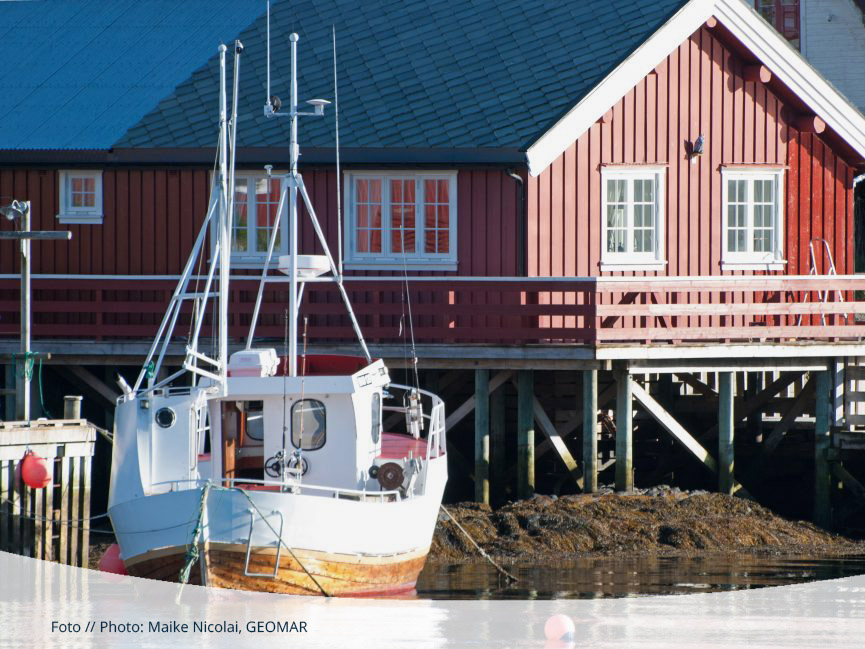
Society impacts of ocean acidification
People have lived from the ocean for as long as we can remember. Cultures are defined by their proximity to the sea. People travel to the coast to relax. Natural resources are hidden in the seafloor. Algae produce about half of the oxygen in the atmosphere. Marine organisms release substances that might one day be used as compounds for medicine and cosmetics. The ocean takes up carbon dioxide from the atmosphere and mitigates climate change. A great deal of our food comes from the sea.
Global climate change and ocean acidification may alter many of these “services”. Fisheries and aquaculture as well as tourism that depends on maritime experiences will be affected directly.
Therefore, BIOACID researchers interviewed stakeholders from the fishing, tourism and environmental protection sectors in Norway: Do they notice any effects of global change already? What consequences do they expect for their sectors? In cooperation with the various players, scientists developed a model calculation about the ecological changes and their impacts on society.
If fish stocks change in size or range due to climate change, the fishing industry and fishermen will need to adapt accordingly. But the small boats used by traditional inshore fisheries are often unable to follow migrating stocks into the high seas. In the far north of Norway, more and more fish disappear from the fjords. Seabird populations decline. As a result, the local population – and the indigenous Sami in particular – are losing an important part of their livelihood and culture. Also the tourism sector of the region, which makes a profit from whale and bird watching as well as sport fishing will be affected by changes in the marine food web triggered by a rise in temperatures and ocean acidification.
In this video portrait, Dr. Felix Mark, marine biologist at Alfred Wegener Institute explains how Atlantic and polar cod compete in Arctic waters.
A Changing Ocean – Online platform based on the results of stakeholder interviews and workshops in Norway:
www.oceanchange.net/barents
LEARN MORE: What is ocean acidification? // Acidification in the Arctic // Plankton // Cold-water corals // Tropical corals